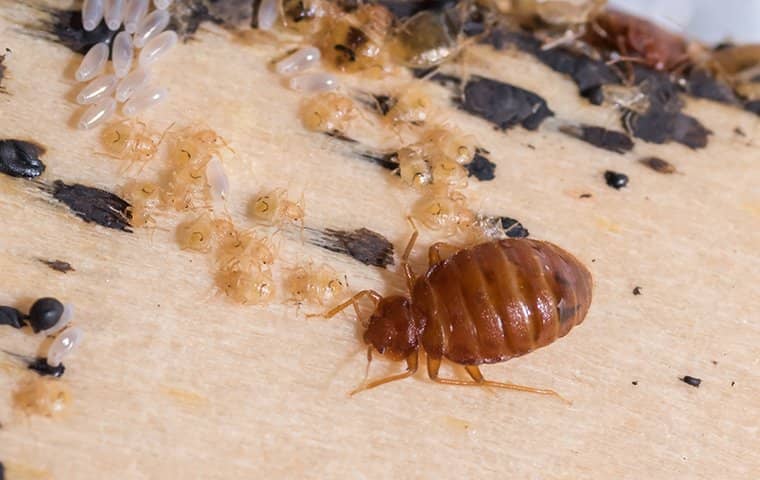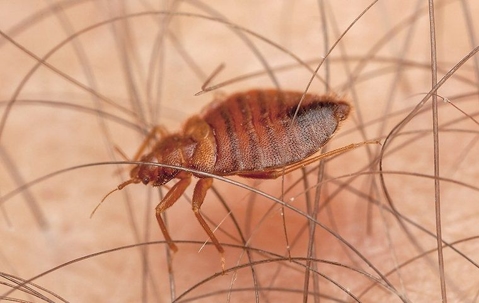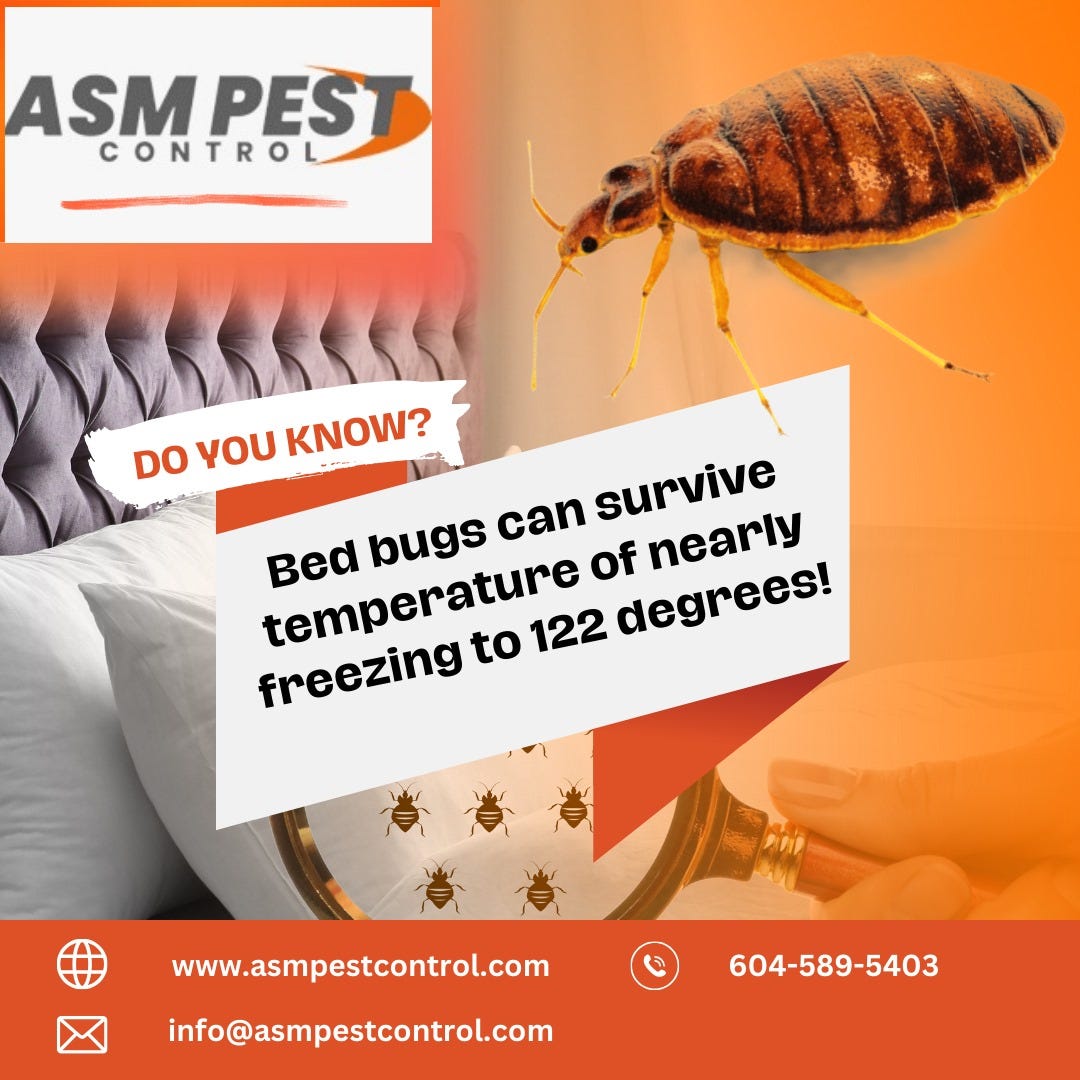Kings Bed Pest Exterminator Cincinnati: Pro Bug Solutions
Types of Insect Control: Which Approach Is Right for Your Invasion?
When confronted with a parasite infestation, the choice of a proper technique for parasite control is vital in properly handling the situation. From chemical therapies to biological services, there exists a series of approaches that can be employed to resolve different kinds of pests. Each method features its own collection of advantages and considerations, making the decision-making procedure a nuanced one. Recognizing the subtleties of each approach and reviewing their compatibility with the certain pest problem available is necessary for achieving long-term success in bug administration. By exploring the various sorts of insect control approaches offered, individuals can make enlightened decisions tailored to their one-of-a-kind scenarios, ensuring a much more reliable and sustainable result in bug elimination.
Chemical Bug Control
Chemical insect control includes the use of artificial or normally obtained chemicals to handle and eliminate pest populations successfully. This technique is frequently used in farming, forestry, and residential setups to deal with a large range of bugs, consisting of rats, weeds, and bugs. The usage of chemical pesticides can provide fast and targeted solutions to pest invasions, making it a preferred option for numerous people and businesses.
One of the key benefits of chemical insect control is its capability to promptly remove parasites, lowering the danger of damages to plants, residential or commercial property, and human health. By utilizing particular chemicals that target specific bugs, this approach can efficiently control infestations while lessening injury to beneficial microorganisms and the setting when used appropriately.
Nevertheless, the use of chemical insect control likewise increases issues about prospective damaging effects on non-target varieties, water resources, and human wellness. It is critical to comply with safety guidelines, use chemicals properly, and take into consideration different insect control methods to reduce these dangers and ensure lasting pest management practices.
Organic Pest Control
Organic parasite control, also referred to as biocontrol, makes use of living microorganisms to minimize and manage insect populaces naturally. This approach utilizes the power of nature to manage insects without the need for artificial chemicals. Biocontrol can involve the intro of natural enemies of the parasite types, such as parasites, predators, or pathogens, to reduce pest populations. By making use of the parasite's all-natural killers or microorganisms, biological pest control provides a eco-friendly and sustainable option to pest administration.

Mechanical Parasite Control
Using physical and hand-operated techniques to manage bug populaces, mechanical parasite control offers an alternate method that does not depend on the usage of living organisms or artificial chemicals. This approach includes the usage of obstacles, traps, or various other tools to physically prevent or eliminate pests. By obstructing parasite access points or establishing catches to capture them, mechanical insect control can effectively reduce problems without introducing chemicals right into the atmosphere.
One common example of mechanical insect control is the use of mesh displays on home windows and doors to avoid insects from getting in structures. This easy yet efficient approach acts as a physical obstacle, keeping bugs out while permitting correct air flow. Furthermore, tools like mousetraps, fly swatters, and ultrasonic repellents fall under the mechanical parasite control category.
While mechanical parasite control approaches can be labor-intensive and call for regular tracking and maintenance, they provide a environmentally friendly and lasting service for handling pest problems. By incorporating various mechanical techniques, residential or commercial property proprietors can produce a detailed parasite control method that minimizes dependence on chemical pesticides.
Physical Pest Control

Some typical physical insect control approaches consist of making use of obstacles such as screens or internet to avoid insect entrance, catches to capture and get rid of bugs, and hand-picking to physically remove parasites from plants or structures. In addition, methods like heat therapies can be used to regulate insects like bed pests by increasing the temperature go to this web-site level to levels that are deadly to the insects.
Physical bug control is particularly useful in integrated parasite monitoring (IPM) methods, where numerous pest control approaches are integrated for efficient parasite management while reducing using chemicals. By making use of physical parasite control techniques, individuals can properly address insect infestations with minimal environmental effect.
Integrated Insect Management
When carrying out physical bug control techniques as component of parasite monitoring techniques, Integrated Bug Administration (IPM) emerges as a comprehensive technique that leverages different strategies to efficiently Bonuses regulate pest populations. IPM concentrates on long-lasting avoidance of bugs through a combination of organic, social, physical, and chemical tools tailored to details parasite issues. By integrating numerous control techniques, IPM aims to lessen the dangers related to bugs while also reducing reliance on chemical options.
One trick element of IPM is the focus on surveillance and analyzing pest populaces to figure out the most proper control approaches. This positive approach permits very early treatment and targeted approaches, leading to much more reliable parasite monitoring. Additionally, IPM advertises eco-friendly methods by focusing on non-chemical control methods and just making use of chemicals as a last hope.
Verdict

By utilizing the insect's natural predators or pathogens, organic pest control uses he has a good point a lasting and environmentally friendly remedy to pest administration. - Kings pest control services Cincinnati oh
Making use of physical and hands-on approaches to manage bug populations, mechanical insect control offers an alternative approach that does not count on the usage of living organisms or synthetic chemicals.An effective strategy to handling bug populaces without counting on chemical or biological approaches includes the usage of physical parasite control strategies.When applying physical pest control approaches as part of pest management techniques, Integrated Pest Monitoring (IPM) arises as a thorough technique that leverages different techniques to effectively control pest populaces. Chemical parasite control involves the usage of chemicals, biological parasite control uses all-natural killers, mechanical bug control entails physical obstacles, physical bug control includes trapping or removing parasites, and incorporated pest administration combines several techniques for an all natural technique to pest control.